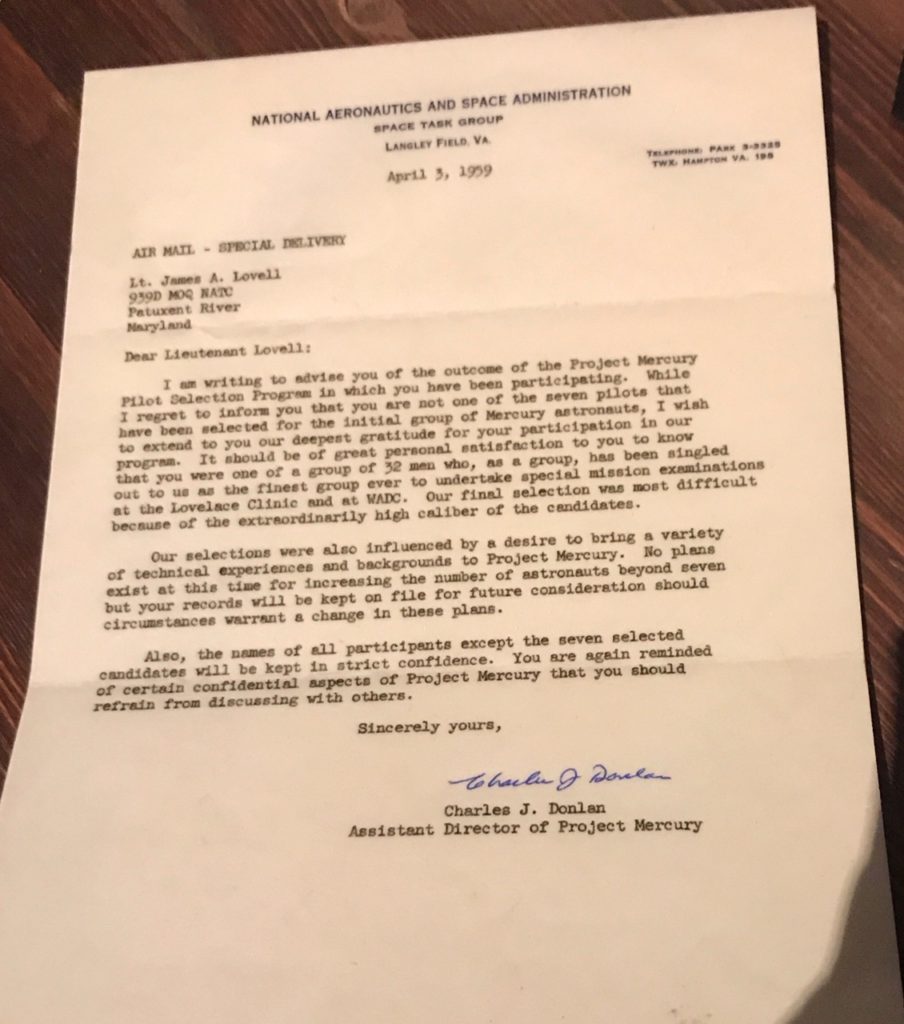Jim Lovell’s rejection was based on a medical condition which, as it turned out, he didn’t even have. Nonetheless, rejected he was. The Mercury Seven astronauts were seven somebody elses. John Glenn, Alan Shepard, and Gus Grissom made the cut. Jim Lovell did not.
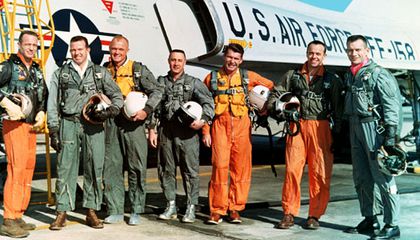
Lovell had experience with rejection. He had wanted to attend MIT or Cal Tech. But his family didn’t have enough money for tuition so Jim went to a less expensive state school and then to the Naval Academy. His rejection letter from 1959 and rejection letters from 60 years later have similar concepts and phrases. Jim’s rejection letter communicated that he couldn’t sit atop a rocket and blast off into the unknown just now. The college rejection letter suggests that the applicant can not presently attend a particular college.
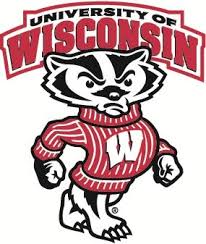
“I am writing to advise you of the outcome of the Project Mercury Pilot Selection Program.” “Our admissions committee has completed its review or Regular Decision candidates.” (Rut roh. This doesn’t sound promising.) “I regret to inform you that you are not one of the seven pilots that have been selected for the initial group of Mercury astronauts.” “Unfortunately, we are not able to offer you admission to the College.” (There it is. First paragraph. Clear as day: No, thank you.)
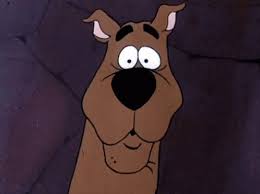
“It should be of great personal satisfaction to you to know that you were one of a group of 32 men who, as a group, has been singled out to us as the finest group ever to undertake special mission examinations… Our final selection was most difficult because of the extraordinarily high caliber of the candidates.” “This year’s applicant pool was one of the largest and most competitive in Colby’s history, and the task of selecting from among so many talented and motivated students was unusually difficult.” (Does any rejected applicant ever feel better knowing that the competition was brutal?)
A copy of Jim Lovell’s rejection letter is in the Field Museum in Chicago. The rest of the exhibit notes some of what Jim was about subsequent to not being one of the Mercury Seven: he spent 14 days in orbit aboard Gemini 7; he was aboard the first craft to leave Earth orbit on Apollo 8; he spent time outside the space craft–one of the first humans to “walk in space.” He piloted Apollo 13 back from the brink of disaster and death. When one of the oxygen tanks on the space craft exploded, Jim Lovell mentioned, “Houston, we have a problem.” It would be difficult to exaggerate the control and the training required to inhibit an emotional response to a damaged capsule. The Apollo 13 astronauts constructed components necessary for reentry with the nearest hardware store some 80,000 miles away. Jim Lovell can be considered a hero’s hero–unrelenting, competent, epic. Or he could be designated a reject. Up to you.
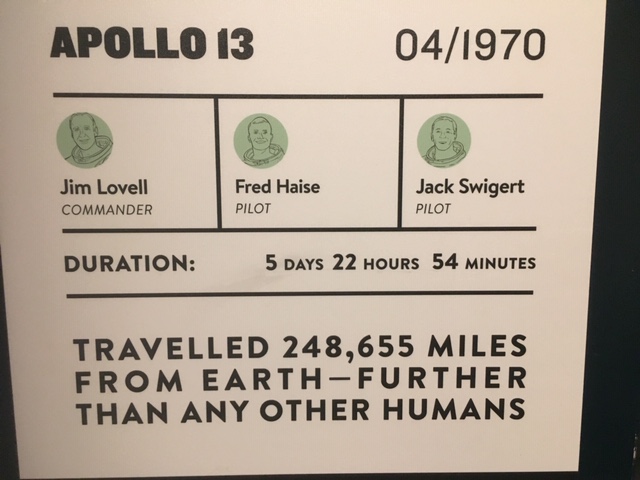
Rejection letters don’t matter. What comes after the rejection letter is what matters. Your life isn’t defined by failure; your life is defined by how you respond to failure. Jim Lovell was not chosen for the first group of Mercury astronauts. As it turned out, there was nothing wrong with his kidney, but he was rejected anyway. Yet nowhere in the biography of Jim Lovell is there reference to his mommy pouting that, “it wasn’t right; Jimmy was just as good as Neil Armstrong; those NASA people are so mean; the medical exam wasn’t fair.”
Shouldn’t we offer our children the same opportunities to achieve? There may be a percentage of truth to “that teacher is imperfect” or “the test was too hard.” But jumping in to take over for our kids is almost always a mistake. Being understanding and supportive, yes. Taking over for their feelings and walking the path for them? Not so much. We owe it to our kids to allow them to learn from and overcome failure.
As Jim Lovell apparently did.
